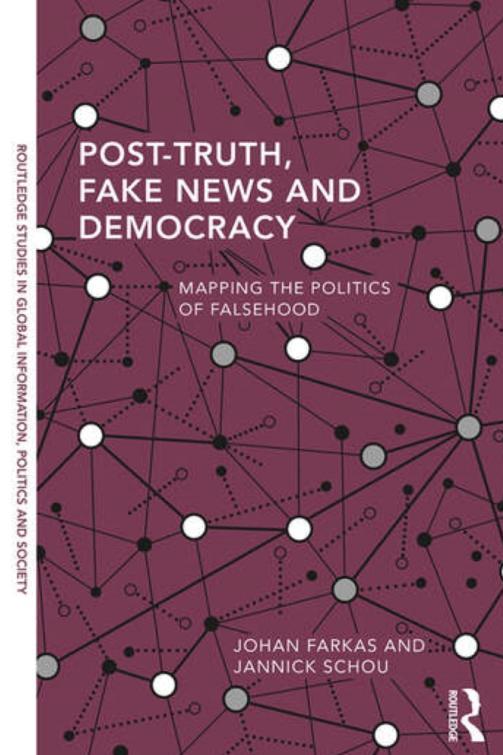Thank you for your message. The IPPA team will get back to you shortly. You first need to login here.

Post-Truth, Fake News, and Democracy (2019)
(Publisher : Routledge)
Author(s) : Johan Farkas & Jannick Schou
Johan Farkas is a PhD Fellow in Media and Communication Studies at Malmö University, Sweden. Farkas has published in international journals such as New Media & Society, Critical Discourse Studies and the Brown Journal of World Affairs. Overall, his research interests lie at the intersection of digital media platforms, politics, civic engagement, journalism, and democracy. Since 2018, Farkas has been the Chair of the Young Scholars Network of the European Communication Research and Education Association (YECREA).
Jannick Schou (PhD) researches questions of politics, citizenship and democracy, particularly in relation to digital technology and European welfare states. He is the author of several monographs and more than a dozen publications in renowned international journals. In 2018, he was awarded the Swedish Political Science Association’s (SWEPSA) prize for best young researcher.




